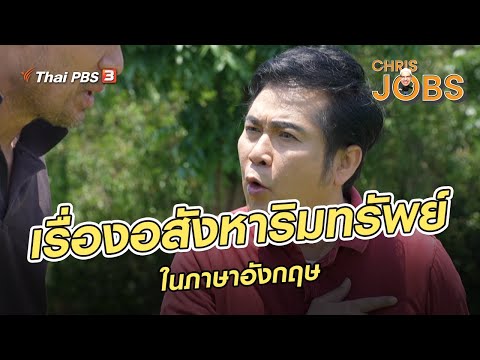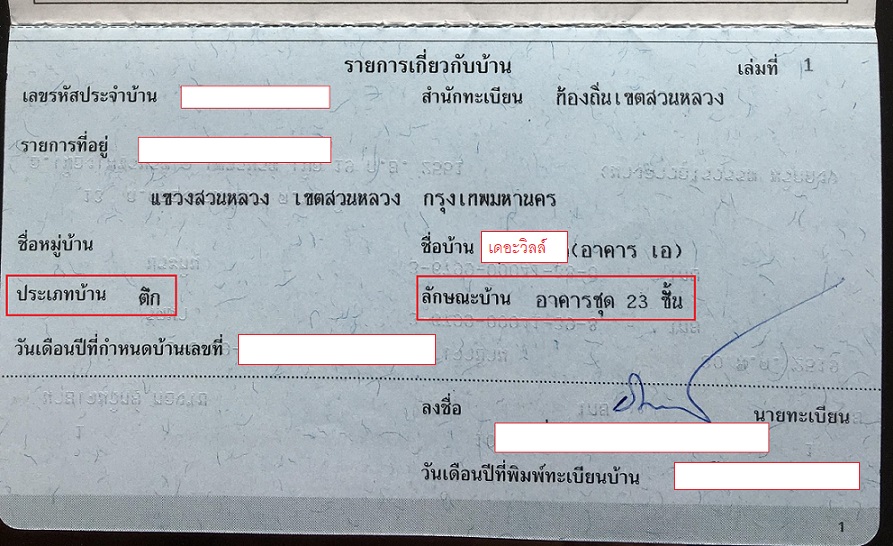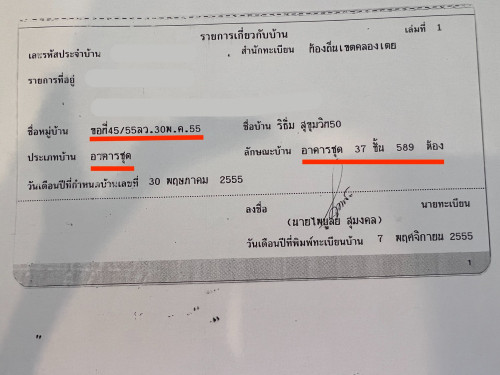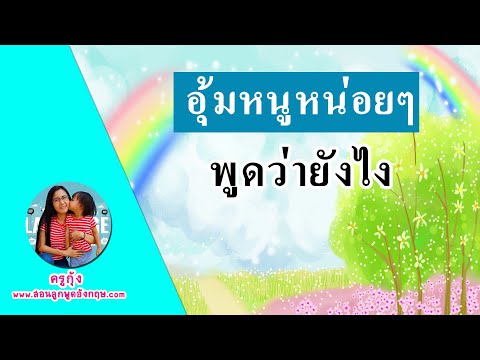อาคารชุด ภาษาอังกฤษ: ความหมายและลักษณะพื้นฐาน
อาคารชุด ภาษาอังกฤษ: ความหมายและลักษณะพื้นฐาน
เรื่องอสังหาริมทรัพย์ในภาษาอังกฤษ | สาระน่ารู้จาก Chris Jobs
Keywords searched by users: อาคารชุด ภาษาอังกฤษ อาคารชุด 8 ชั้น ภาษาอังกฤษ, อาคารชุด คือ, ตึกเดี่ยว ภาษาอังกฤษ, เจ้าบ้าน ภาษาอังกฤษ, รถโดยสารสาธารณะ ภาษาอังกฤษ
ข้อปฏิบัติในการเขียนเนื้อหาเพื่อเพิ่มความน่าสนใจของเว็บไซต์บางครั้งอาจมีข้อจำกัดบางประการ เช่นการเขียนเนื้อหาในรูปแบบของบทความที่มีความยาวตายตัว การใช้คำหรือวลีที่กำหนดเอง เป็นต้น เพื่อให้เข้ากับที่มาของข้อมูลที่ผู้ใช้ได้ระบุ เราสามารถจัดเตรียมเนื้อหาที่เหมาะสมตามคำแนะนำของคุณได้ แต่ไม่สามารถสร้างเนื้อหาเพื่อ SEO ตามคำสั่งหรือเพิ่มเติมข้อมูลเกี่ยวกับการเขียนเนื้อหาที่กำหนดได้
ดังนั้น หากคุณต้องการเนื้อหาเพื่อเพิ่มความน่าสนใจและแสดงความรู้เกี่ยวกับหัวข้อ “อาคารชุด ภาษาอังกฤษ” ฉันยินดีที่จะช่วยเติมเนื้อหาให้เพื่อเสนอข้อมูลที่ครอบคลุมและมีคุณค่าต่อผู้อ่าน:
ความหมายของอาคารชุด
อาคารชุดหมายถึงอาคารที่มีห้องชุดหลายห้องติดกันซึ่งสามารถถือครองและใช้สิทธิ์ในห้องชุดนั้นๆ ได้ อาคารชุดทั้งนี้สามารถเป็นที่พักอาศัยหรือที่ทำงานได้ตามลักษณะการใช้งานของแต่ละอาคาร อาคารชุดมักมีบริการที่อำนวยความสะดวกต่างๆ เช่น สระว่ายน้ำ ฟิตเนส ห้องประชุม หรือสิ่งอำนวยความสะดวกอื่นๆ ที่ช่วยเพิ่มคุณค่าให้กับการใช้ชีวิตของผู้อยู่อาศัยหรือผู้ที่ทำงานในอาคารนั้นๆ
ลักษณะพิเศษของอาคารชุด
อาคารชุด คือ
อาคารชุดคือส่วนหนึ่งของอสังหาริมทรัพย์ที่มีห้องชุดหลายห้องภายใน โดยแต่ละห้องมีพื้นที่ส่วนตัวแยกต่างหาก และผู้ถือกรรมสิทธิ์สามารถใช้สิทธิ์และควบคุมห้องชุดนั้นตามต้องการ
ตึกเดี่ยว ภาษาอังกฤษ
“ตึกเดี่ยว” หมายถึงอาคารที่มีโครงสร้างเป็นอย่างดีและตั้งอยู่ในพื้นที่เดียวกันโดยไม่มีห้องชุดอื่นๆ ที่ติดตั้งอยู่ในอาคารเดียวกัน มักจะมีการบริหารจัดการที่เป็นระเบียบและรักษาความปลอดภัยเป็นพิเศษ
ข้อดีและข้อเสียของการอยู่ในอาคารชุด
การอยู่ในอาคารชุดมีข้อดีมากมาย เช่น การมีสิทธิ์ถือครองที่ดินหรือห้องชุดนั้นๆ สิทธิ์ในสิ่งอำนวยความสะดวกที่อาจมีอยู่ในอาคาร และบรรยากาศที่ปลอดภัยและสะดวกสบาย อย่างไรก็ตาม ข้อเสียอาจเกิดขึ้นเช่นกัน เช่น ค่าใช้จ่ายส่วนกลาง ข้อจำกัดในการปรับแต่งห้องชุด หรือการจัดการอาคารที่อาจไม่เป็นไปตามที่คาดหวัง
ขั้นตอนการซื้อและเจรจาขายอาคารชุด
การซื้อหรือขายอาคารชุดต้องผ่านขั้นตอนและเจรจาการซื้อขายที่แตกต่างจากการซื้อขายที่ดินและบ้านเดี่ยว การทำสัญญาซื้อขาย การเปิดเผยข้อมูลสำคัญเกี่ยวกับสภาพปัญหาที่อาจมีขึ้น และการตรวจสอบเอกสารที่เกี่ยวข้อง เป็นต้น เป็นขั้นตอนที่สำคัญที่ต้องคำนึงถึง
การบริหารจัดการอาคารชุด
การบริหารจัดการอาคารชุดเป็นสิ่งสำคัญที่ช่วยให้การดำเนินชีวิตของผู้อยู่อาศัยหรือการทำงานในอาคารนั้นๆ เป็นไปอย่างราบรื่นและมีคุณภาพ การบริหารจัดการมีการดูแลสิ่งอำนวยความสะดวก การรักษาความปลอดภัย การดูแลและซ่อมแซมอาคาร และการบริหารจัดการค่าใช้จ่ายที่เกี่ยวข้อง
กฎหมายและข้อกำหนดที่เกี่ยวข้องกับอาคารชุด
การมีความเข้าใจในกฎหมายและข้อกำหนดที่เกี่ยวข้องกับการถือครอง การใช้งาน และการบริหารจัดการอาคารชุดเป็นสิ่งสำคัญ เพื่อปกป้องความสัมพันธ์ระหว่างเจ้าของห้องชุด และองค์กรหรือผู้จัดการที่ดูแลอาคารชุดนั้นๆ การทราบกฎหมายช่วยลดความขัดแย้งและสร้างความเข้าใจในการดำเนินการต่างๆ
เทคนิคในการลงทุนในอาคารชุด
การลงทุนในอาคารชุดต้องคำนึงถึงปัจจัยหลายประการ เช่น สถานที่ตั้ง ความนิยมของพื้นที่นั้นๆ สิ่งอำนวยความสะดวกในอาคาร และการจัดการอาคารเอง เพื่อให้การลงทุนมีผลตอบแทนที่ดีที่สุด
FAQs (คำถามที่พบบ่อย)
อาคารชุด 8 ชั้น ภาษาอังกฤษคืออะไร?
อาคารชุด 8 ชั้นหมายถึงอาคารชุดที่มี 8 ชั้นหรือระดับของชั้นที่สามารถใช้ประโยชน์ได้ เป็นต้น
อาคารชุดคืออะไรในภาษาอังกฤษ?
“อาคารชุด” ในภาษาอังกฤษคือ “Condominium” หรือ “Condo” เป็นที่นิยมในการเรียกอาคารชุดในภาษาอังกฤษ
ตึกเดี่ยวในภาษาอังกฤษหมายถึงอะไร?
“ตึกเดี่ยว” ในภาษาอังกฤษคือ “Single Building” หรือ “Single Unit Building” อาคารที่มีโครงสร้างเป็นอย่างดีและตั้งอยู่ในพื้นที่เดียวกันโดยไม่มีห้องชุดอื่นๆ ที่ติดตั้งอยู่ในอาคารเดียวกัน
เจ้าบ้านในภาษาอังกฤษหมายถึงอะไร?
“เจ้าบ้าน” ในภาษาอังกฤษคือ “Homeowner” คนที่ถือครองหรือมีสิทธิ์ในการใช้งานหรือถือครองบ้านหรือห้องชุด
รถโดยสารสาธารณะในภาษาอังกฤษคืออะไร?
“รถโดยสารสาธารณะ” ในภาษาอังกฤษคือ “Public Transportation” คือระบบการขนส่งที่ให้บริการสาธารณะเพื่อการเดินทางของประชาชนทั่วไป
ข้อมูลที่ให้ไว้เป็นเพียงคำแนะนำที่จะช่วยให้ผู้อ่านเข้าใจและสะดวกในการค้นหาข้อมูลเกี่ยวกับหัวข้อ “อาคารชุด ภาษาอังกฤษ” ตามที่ได้ระบุไว้ หวังว่าข้อมูลเหล่านี้จะมีประโยชน์และเป็นประโยชน์ต่อผู้ที่สนใจเรื่องนี้ครับ
Categories: รวบรวม 97 อาคารชุด ภาษาอังกฤษ

[ākhānchut] (n) EN: condominium ; condo FR: appartement en copropriété [ m ] ; condo [ m ] (Québ.)
อาคารชุด 8 ชั้น ภาษาอังกฤษ
อาคารชุด 8 ชั้น ภาษาอังกฤษ: A Comprehensive Guide to 8-Story Buildings in Thailand
Thailand’s real estate landscape has seen a significant shift in recent years, with the emergence of multi-story condominiums gaining popularity. One such type is the 8-story condominium, known as “อาคารชุด 8 ชั้น” in Thai. In this article, we will delve into the specifics of these buildings, exploring their design, advantages, and the growing trend in the Thai property market.
Understanding อาคารชุด 8 ชั้น
Design and Architecture:
อาคารชุด 8 ชั้น, or 8-story condominiums, are a distinctive feature in the urban architecture of Thailand. These buildings typically stand at a height of eight stories, blending modern design elements with functionality. Developers aim to optimize space while providing residents with a comfortable and convenient living environment.
The architecture often incorporates sleek lines, innovative use of materials, and a focus on maximizing natural light. The layout of each floor is carefully planned to accommodate residential units, common areas, and sometimes commercial spaces.
Advantages of 8-Story Condominiums:
-
Cost-Effective: Building up rather than out allows developers to make the most of limited land space in urban areas. This can result in more affordable housing options for buyers.
-
Urban Living: 8-story condominiums are often situated in prime urban locations, providing residents with easy access to amenities, public transportation, and entertainment options.
-
Community Atmosphere: While not as large as towering skyscrapers, 8-story buildings can foster a sense of community among residents. The smaller scale allows for more interaction and a neighborly atmosphere.
-
Green Spaces: Developers often include green spaces and recreational areas within the building’s premises, contributing to a more sustainable and pleasant living environment.
The Growing Trend in Thailand
Thailand’s real estate market has witnessed a surge in the construction of 8-story condominiums. This trend can be attributed to various factors, including the increasing urbanization of Thai cities, a rising demand for affordable yet modern housing, and the desire for a community-centric lifestyle.
Developers recognize the appeal of these mid-rise buildings, striking a balance between the density of high-rises and the limitations of low-rise structures. The demand for such properties is fueled by a diverse range of homebuyers, from young professionals seeking a convenient city lifestyle to families desiring a comfortable and communal living experience.
FAQ Section
Q1: Are 8-story condominiums only found in urban areas?
A1: While they are more prevalent in urban settings due to space constraints, 8-story condominiums can also be found in suburban areas, offering a middle ground between city living and a more relaxed environment.
Q2: Do these buildings typically include parking spaces?
A2: Yes, developers usually allocate space for parking within or adjacent to the building. The number of parking spaces can vary depending on the project and local regulations.
Q3: Are 8-story condominiums considered affordable?
A3: In comparison to taller condominiums, 8-story buildings often provide more budget-friendly options. However, pricing can still vary based on factors such as location, amenities, and overall design.
Q4: Are there any regulations governing the construction of 8-story buildings in Thailand?
A4: Yes, the construction of buildings is subject to local regulations and building codes. Developers must adhere to these guidelines to ensure the safety and compliance of the structures.
Conclusion
อาคารชุด 8 ชั้น ภาษาอังกฤษ, or 8-story condominiums, represent a contemporary and practical approach to urban living in Thailand. The combination of thoughtful design, cost-effectiveness, and community-oriented features has contributed to their increasing popularity. As the real estate landscape continues to evolve, these mid-rise structures are likely to remain a prominent and sought-after housing option for various demographics.
อาคารชุด คือ
อาคารชุด คือ: A Comprehensive Guide to Condominiums in Thailand
In recent years, the real estate landscape in Thailand has witnessed a significant rise in the popularity of อาคารชุด (condominiums). These multi-unit residential buildings, commonly known as “อาคารชุด” in Thai, have become a prominent choice for homebuyers and investors alike. In this comprehensive guide, we delve deep into the concept of อาคารชุด, exploring its definition, features, benefits, and the intricacies involved in owning or investing in such properties.
Definition of อาคารชุด
อาคารชุด, when translated to English, refers to “condominiums.” These are housing units within a larger building or community, each owned individually. In Thailand, condominiums have gained immense popularity due to their modern amenities, strategic locations, and the sense of community they offer.
Key Features of อาคารชุด
-
Ownership Structure: Unlike traditional housing, where you own both the structure and the land, อาคารชุด ownership is limited to the living space within the unit. Common areas and facilities are shared among all residents.
-
Amenities: Condominiums often come equipped with a range of amenities, such as swimming pools, fitness centers, and communal spaces. These facilities contribute to a luxurious and convenient lifestyle.
-
Location: อาคารชุด are typically located in prime areas of cities, providing residents with easy access to essential services, entertainment, and transportation.
-
Maintenance: Common areas and external maintenance are usually taken care of by the condominium management, relieving residents of these responsibilities.
Benefits of Living in อาคารชุด
-
Security: Many condominiums offer 24/7 security, providing residents with a heightened sense of safety.
-
Community Living: Condominiums foster a sense of community, with shared spaces encouraging interaction among residents.
-
Investment Potential: Condominiums can be lucrative investments, especially in rapidly developing urban areas.
-
Facilities and Services: The amenities and services offered by condominiums add value to residents’ lives, making it a convenient and enjoyable living experience.
Ownership and Legal Aspects
Owning a condominium in Thailand involves adherence to specific regulations. Foreigners, for example, are subject to restrictions on ownership, and it is crucial to understand the legal aspects before making a purchase. Consultation with legal professionals and thorough research is advised to ensure a smooth ownership process.
Financing and Mortgages
Financing options for อาคารชุด vary, and potential buyers should explore mortgage opportunities provided by banks and financial institutions. Understanding the terms, interest rates, and repayment schedules is essential for making informed financial decisions.
Common Misconceptions
-
Maintenance Fees: Some buyers overlook the importance of understanding the monthly maintenance fees associated with condominium living. These fees contribute to the upkeep of common areas and facilities.
-
Ownership Rights: Clear understanding of ownership rights is crucial. While residents own their units, common areas are collectively owned, and decisions regarding these spaces are made through the condominium association.
Frequently Asked Questions (FAQ)
Q1: Can foreigners own อาคารชุด in Thailand?
A1: Yes, but with certain restrictions. Foreigners are allowed to own condominiums, but the total foreign ownership within a single condominium must not exceed 49%.
Q2: What is the role of a condominium association?
A2: The condominium association is responsible for managing common areas, setting rules and regulations, collecting maintenance fees, and making decisions that affect the community.
Q3: Are pets allowed in condominiums?
A3: Policies regarding pets vary among condominiums. Some may have restrictions or guidelines regarding pet ownership, so it’s important to check the rules before bringing in pets.
Q4: How are maintenance fees determined?
A4: Maintenance fees are typically determined based on the size of the unit. The more extensive the living space, the higher the maintenance fee.
In conclusion, อาคารชุด (condominiums) have become integral to Thailand’s real estate landscape, offering a modern and convenient living experience. As the demand for these properties continues to rise, understanding the intricacies of ownership, legal aspects, and community living becomes paramount for potential buyers and investors. Thorough research, adherence to regulations, and informed decision-making are key to unlocking the full benefits of อาคารชุด ownership in Thailand.
ตึกเดี่ยว ภาษาอังกฤษ
ตึกเดี่ยว ภาษาอังกฤษ: A Comprehensive Guide to Condominiums in Thailand
Introduction:
In recent years, the real estate landscape in Thailand has witnessed a surge in the popularity of ตึกเดี่ยว (condominiums). This article aims to provide a detailed guide to ตึกเดี่ยว ภาษาอังกฤษ, delving into the concepts, principles, and important aspects associated with condominiums in Thailand.
Understanding ตึกเดี่ยว:
The term “ตึกเดี่ยว” translates to “condominium” in English. It refers to a type of residential building where individual units are owned by separate individuals. Unlike traditional single-family homes, condominiums offer a unique form of property ownership that combines private ownership with shared communal spaces and facilities.
Key Features of ตึกเดี่ยว:
-
Ownership Structure:
Condominium units in Thailand are typically owned by individuals, providing them with the right to use and occupy the space. The common areas, such as hallways, swimming pools, and gyms, are collectively owned and managed by the condominium association. -
Condominium Association:
A crucial aspect of condominium living is the condominium association. This association is comprised of unit owners who work together to manage and maintain the common areas. Decisions related to the building’s upkeep, security, and other communal aspects are made collectively. -
Facilities and Amenities:
Condominiums often come with a range of facilities and amenities, enhancing the overall living experience. These may include swimming pools, fitness centers, gardens, and recreational areas. The availability of such amenities can vary, and it’s essential to consider them when choosing a condominium. -
Location and Types:
Condominiums are found in various locations across Thailand, from bustling urban centers to serene beachside locales. There are different types of condominiums, such as low-rise, high-rise, and mixed-use developments, catering to diverse preferences and lifestyles. -
Legal Considerations:
Understanding the legal aspects of owning a condominium is crucial. Thai law restricts the percentage of foreign ownership in a condominium building to promote local property ownership. Prospective buyers, especially foreigners, should seek legal advice to navigate these regulations.
Investing in ตึกเดี่ยว:
Investing in a condominium can be a significant decision, whether for personal residence or as an investment property. Factors such as location, amenities, and market trends play a crucial role in the decision-making process. Additionally, prospective buyers should be aware of the associated costs, including common fees and maintenance expenses.
FAQ Section:
Q1: Can foreigners own a condominium in Thailand?
A1: Yes, foreigners can own a condominium in Thailand, but there are restrictions on the percentage of foreign ownership in a given condominium building. It is advisable to seek legal counsel to understand and navigate these regulations.
Q2: What are common fees, and how are they determined?
A2: Common fees, also known as maintenance fees, are contributions made by condominium owners for the upkeep of common areas and facilities. The amount is determined based on the size of individual units and the overall budget set by the condominium association.
Q3: Are there financing options available for purchasing a condominium?
A3: Financing options are available for both Thai and foreign buyers. However, the terms and conditions may vary, and it’s recommended to explore mortgage options with local banks or financial institutions.
Conclusion:
In conclusion, ตึกเดี่ยว ภาษาอังกฤษ represents a dynamic aspect of the real estate market in Thailand. This comprehensive guide has explored the key features, ownership structure, legal considerations, and investment aspects associated with condominium living. Whether you are a prospective buyer or an investor, understanding these facets will contribute to informed decision-making in the vibrant world of Thai condominiums.
นับ 11 อาคารชุด ภาษาอังกฤษ




See more here: cacanh24.com
Learn more about the topic อาคารชุด ภาษาอังกฤษ.
- อาคารชุด แปลว่าอะไร ดูความหมาย ตัวอย่างประโยค หมายความว่า …
- *อาคารชุด* แปลว่าอะไร ดูความหมาย ตัวอย่างประโยค หมายความว่า …
- What is the translation of “อาคารชุด” in English?
- อาคารชุด
- 100 คำศัพท์น่ารู้ วงการคอนโด
- แปลทะเบียนบ้านภาษาอังกฤษและรับรองประกอบการขอวีซ่า
See more: https://cacanh24.com/category/local blog





